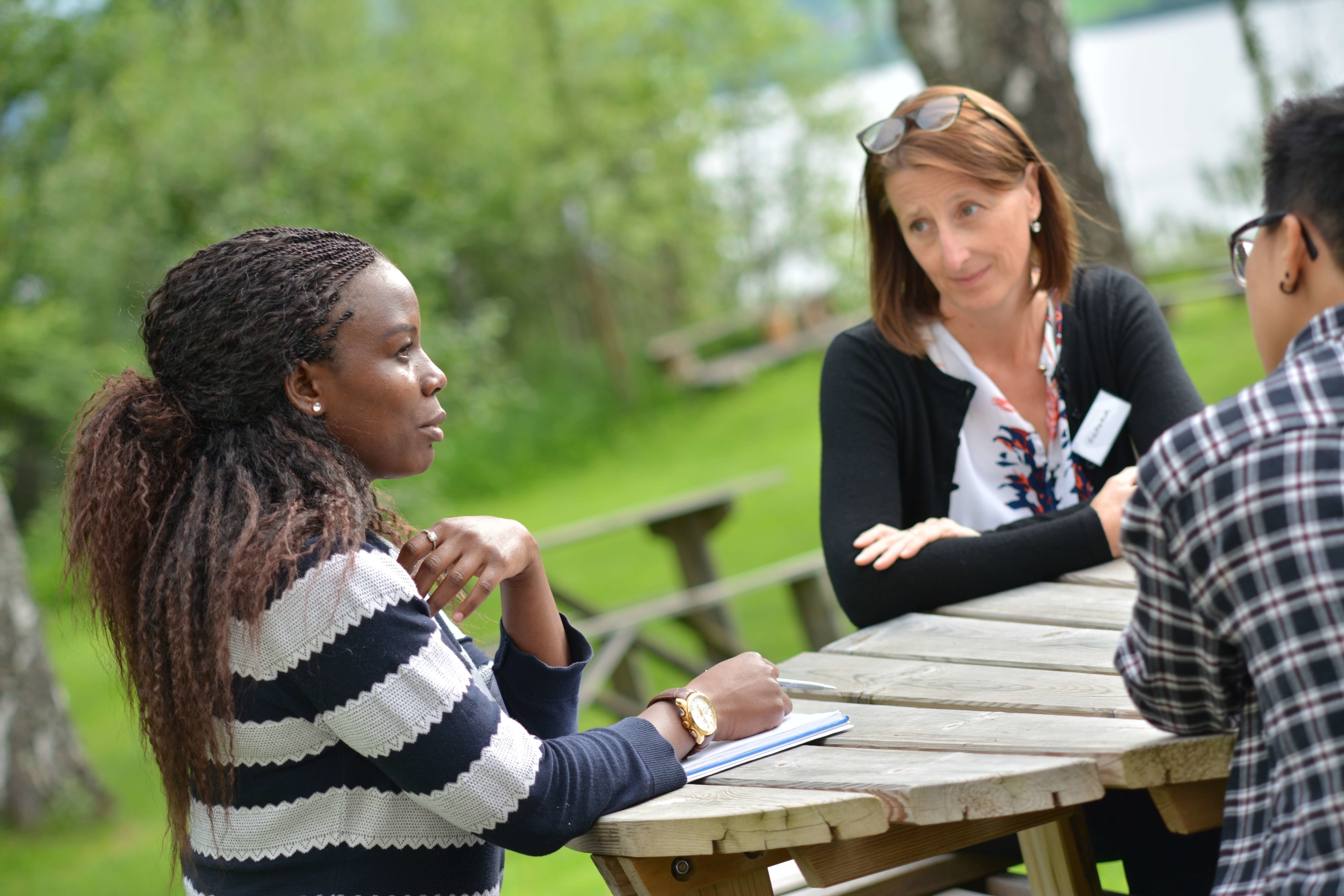Kurset holdes på engelsk. Øvrig kursinformasjon er derfor også kun på engelsk.
Dialogue facilitation is an approach in conflict transformation and community building which enable people to talk together in an honest, open, and humanizing manner. Participants are invited to a process-based way of talking, where empathic listening and good questions form the foundation, and inclusiveness, respect, joint ownership, and humanity are the key ingredients. The facilitator of this process is crucial for creating and maintaining a safe space where participants feel respected, heard, and valued – they feel that they are entering a conversation where they matter.
If you want to learn how to organize and facilitate dialogue processes in different contexts like conflict situations, challenging topics or for building or re-building social networks this is the right training for you.
WHEN? Monday 20th – Friday 24th of June (advised arrival on the 19th)
WHERE? Nansen Academy, Lillehammer, Norway
LANGUAGE English
FEE 890 EURO / 9000 NOK
The fee covers all accommodation costs and meals for the duration of the training.
APPLICATION DEADLINE: May 8th
Acceptance to this training requires either extensive experience in dialogue work or participation in our introductory training Dialogue in Conflict.
TRAINING CONTENT
This training is a composition of the topics concerning facilitation as a method of dialogue processes and conflict transformation. It is a five-day process-oriented course and consists of different aspects of the role of the facilitator. You get to practice the role in roleplays and reflect upon various challenges a facilitator has to navigate.
The main components of the program are:
Interactive recap of the concept of dialogue
A short recap of definitions of dialogue and the two most important elements in dialogue, active listening and asking questions, through interactive exercises.
Reflective activities on dialogue facilitation
What is dialogue facilitation, and how does this approach differ from mediation, moderation or leading a discussion or debate.
The role of the facilitator
Brainstorm around the role of the dialogue facilitator and its main characteristics. Elaborate the importance of multipartiality in facilitation and how to maintain this approach throughout the dialogue.
Practicing dialogue facilitation
Participants will get insight in the difference between conflict based and public dialogues and practice facilitation through role plays based on conflict situations or topics presented by the trainers. They will receive comprehensive feedback based on observation from both the trainers and other participants, which will help them understand the role and its implications.
Challenges in dialogue facilitation
Participants will reflect around different challenges related to the role of the facilitator; navigating power imbalances, outbreaks of strong emotions, or spoilers of the dialogue and how to be an authority without becoming authoritarian.
Dialogue as tool for reconciliation
To reconcile is challenging process, but possible. In an interactive process participants will explore the concept of reconciliation and what role dialogue can play in this process.
Planning a dialogue process
The participants will gain insight in the differences between a dialogue session and a dialogue process. Knowing when to use dialogue and what its limits are will be discussed. Participants will learn about different steps in the process and techniques to motivate people to stay active throughout. In addition to conflict transformation processes, the training will cover how to plan and execute public dialogues.

